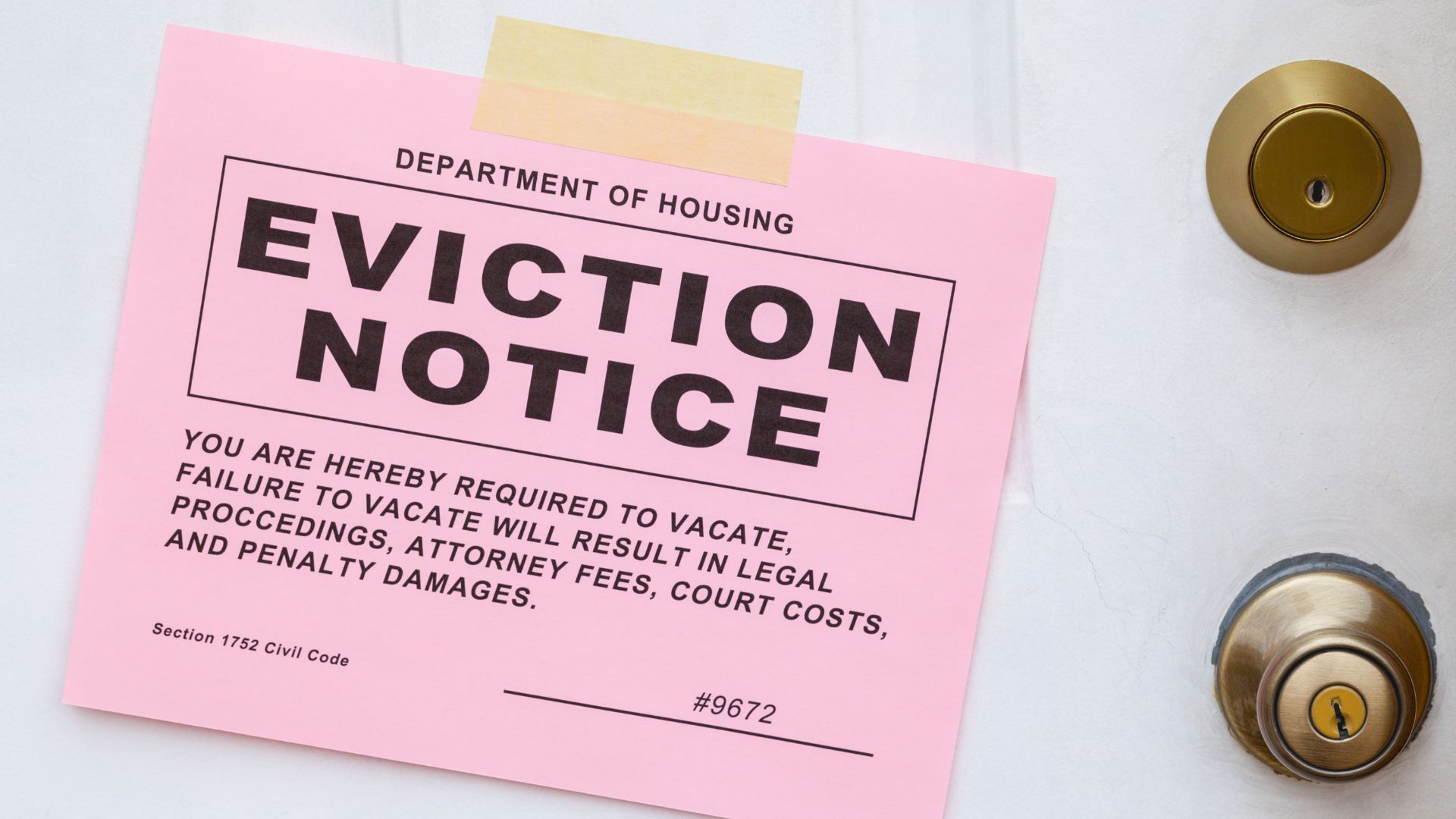
The inspection report was a disaster. The financing contingency expired. Whatever the reason, the transaction has fallen apart. The “For Sale” sign is coming down, your clients are frustrated, and everyone wants to move on.
But one critical issue remains: the earnest money deposit (EMD) sitting in escrow.
The buyer, citing a failed contingency, demands it back. The seller, claiming the buyer breached the contract, is adamant it serves as their liquidated damages. As their realtor, you’re stuck in the middle, fielding emotional phone calls and forwarding demands. This is the precise moment when a complex legal term often surfaces: Interpleader Action.
It’s a word that can make even seasoned agents shudder. At Barnes Walker, we believe that understanding this legal process is not just for attorneys; it’s a critical piece of knowledge for any real estate professional. This guide will demystify the “interpleader,” explain the high-stakes risks for your clients, and demonstrate how your knowledge of this process can help you add immense value when a deal goes sideways.
The Escrow Agent’s Dilemma: The Neutral Stakeholder
First, let’s clarify the role of the escrow agent (often the title company or a closing attorney). They are not a judge, a jury, or a mediator. They are a neutral third-party or “stakeholder.” Their only job is to follow the precise, written instructions agreed upon by both the buyer and the seller in the purchase contract.
This is the critical point you must help your clients understand: The escrow agent cannot pick a side.
Even if the seller has a stack of texts proving the buyer’s default, or the buyer has an iron-clad inspection report, the escrow agent is legally barred from “deciding” who is right. If they were to release the funds to the buyer without the seller’s consent (or vice-versa), the escrow agent would be exposing themselves to a massive lawsuit for breach of fiduciary duty.
So, what happens when they receive two conflicting demands—the buyer’s signed release form and the seller’s formal objection? They are legally paralyzed. They cannot disburse the funds to anyone. This stalemate is the official trigger for an interpleader action.
What Exactly Is an Interpleader Action?
An interpleader is a civil lawsuit. The word itself means “to plead between parties.”
In this scenario, the plaintiff (the party filing the lawsuit) is the escrow agent.
This is not a lawsuit to win the money. It’s a lawsuit to get rid of the money. The escrow agent is, in effect, walking into the county courthouse and saying:
“Your Honor, I am holding $15,000 in escrow. Buyer A and Seller B both claim they are entitled to it. I, the escrow agent, have no legal claim to this money, and I don’t want to be sued by whomever I don’t pay. I am asking the Court to take this money, let me out of this dispute, and order the Buyer and Seller to argue their cases before you.”
The “defendants” in this initial lawsuit are all parties who have a potential claim to the funds—this is almost always the buyer(s) and the seller(s).
The Interpleader Process and Timeline
An interpleader doesn’t happen the day after a dispute. There is a predictable, and often slow, timeline.
- The Dispute Arises: The contract terminates, and a disagreement over the EMD becomes clear.
- Conflicting Demands: Both parties make formal, written, and contradictory demands for the funds.
- The “Good Faith” Waiting Period: The escrow agent won’t run to the courthouse immediately. They will typically send a formal letter to all parties acknowledging the “conflicting demands.” They will state that they cannot release the funds and will urge the parties to negotiate a resolution or seek mediation within a “reasonable period” (often 30 to 90 days).
- Hiring Counsel: When that period expires with no resolution, the escrow agent has no choice. They hire their own attorney to draft the “Complaint for Interpleader.”
- Filing and Service: The lawsuit is filed with the clerk of court. The buyer and seller are then formally “served” with the lawsuit, just like in any other legal action.
- Depositing the Funds: The escrow agent’s attorney files a motion asking the court for permission to deposit the contested EMD into the court’s registry (a special bank account held by the court).
The Real-World Impact: The Incredible Shrinking Deposit
This is the single most important part for your clients to understand. The moment an interpleader is filed, the “bucket” of money they are fighting over begins to shrink.
The escrow agent, as an innocent neutral party forced to file a lawsuit, is legally entitled to recover their reasonable attorney’s fees and court costs directly from the escrowed funds.
Let’s do the math on that $15,000 EMD. The costs for the escrow agent include:
- Court Filing Fees: Several hundred dollars.
- Process Server Fees: Costs to formally serve the lawsuit to both buyer and seller.
- Attorney’s Fees: Several hours of an attorney’s time to draft the complaint, file the motion, and attend the initial hearing.
It is common for $3,000 to $5,000 (or more) to be deducted from the EMD before the remaining funds are even deposited with the court.
Suddenly, your clients are no longer fighting over $15,000. They are fighting over $11,000. This financial reality check is often the best negotiation tool you have.
What Happens After the Escrow Agent is Gone?
The interpleader does not solve the dispute; it just changes the venue.
Once the (now-reduced) funds are in the court’s registry, the judge will sign an order “discharging” the escrow agent from the case. Their involvement is over.
What’s left? The buyer and seller are the only two parties remaining in the lawsuit. The judge will order them to file “cross-claims” against each other, where they must formally plead their case for why they are entitled to the money.
This means both the buyer and the seller must now hire their own attorneys to represent them in this ongoing lawsuit. This is where the costs truly skyrocket. It is entirely possible for the parties to spend more on their own legal fees than the amount of the deposit they are trying to win. It can become a “lose-lose” situation, driven by principle rather than financial sense.
The Realtor’s Role: Your Value as a Strategic Advisor
As a real estate agent, you are not an attorney and must never give legal advice. However, you play a pivotal role in managing expectations and helping clients avoid this costly quagmire.
- Clarity in the Contract: Prevention starts here. Advocate for clear, unambiguous language in your contracts. Ensure contingency deadlines, notice periods, and the definitions of “default” are crystal clear.
- Present the “Cost of Fighting”: This is your most powerful, non-legal tool. When your seller is dug in, refusing to compromise on the $15,000, you can factually explain the interpleader process.
- Sample script: “Mr./Ms. Seller, I understand you feel you are 100% right. I just want to make you aware of the process. If we cannot reach a written agreement with the buyer, the title company’s only option is to file an interpleader. They will take their legal fees, likely around $4,000, directly from the $15,000. Then, you will have to hire your own lawyer to fight the buyer for the $11,000 that’s left. Given those costs, would you be willing to consider a 60/40 split today to avoid that risk and expense?”
- Recommend Legal Counsel Early: The moment a serious dispute over the EMD arises, advise your client to speak with a qualified real estate attorney. This is not admitting defeat; it’s a smart business decision to understand their full legal rights and risks.
Interpleader is the legal system’s escape hatch for a neutral party caught in a crossfire. While necessary, it’s a process that ultimately benefits no one involved in the transaction. As a professional, your understanding of this process moves you from being a facilitator to a true strategic advisor, helping your clients make a logical business decision, not a costly emotional one.
Disclaimer: The information and opinions provided are for general educational, informational or entertainment purposes only and should not be construed as legal advice or a substitute for consultation with a qualified attorney. Any information that you read does not create an attorney–client relationship with Barnes Walker, Goethe, Perron & Shea, PLLC, or any of its attorneys. Because laws, regulations, and court interpretations may change over time, the definitions and explanations provided here may not reflect the most current legal standards. The application of law varies depending on your particular facts and jurisdiction. For advice regarding your specific situation, please contact one of our Florida attorneys for personalized guidance.
Visit our legal department pages:
Real Estate Attorneys
Business Attorneys
Litigation Attorneys
Estate Planning Attorneys
Inheritance Attorney
Probate Attorney
Probate & Trusts
Trust • Experience • Results
Ready to Get Started?
Get started with Barnes Walker today.












